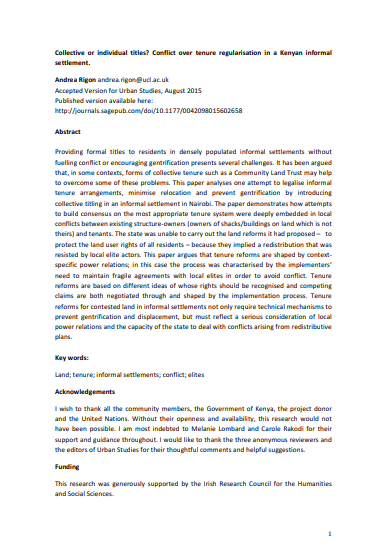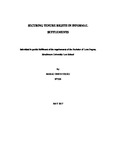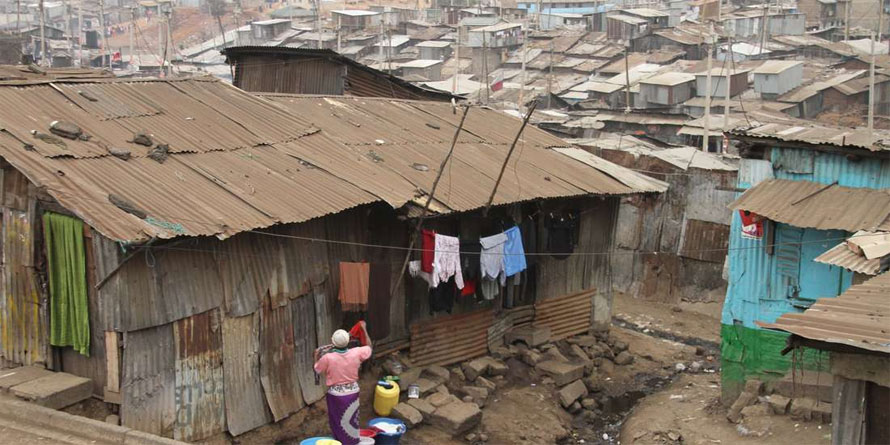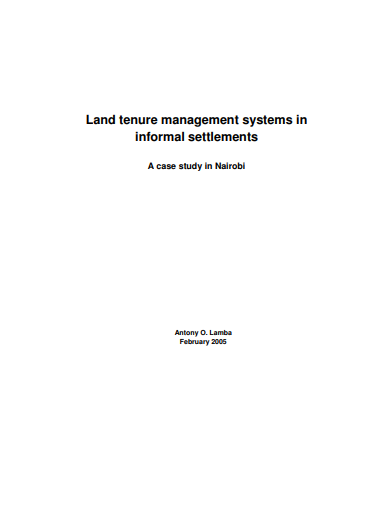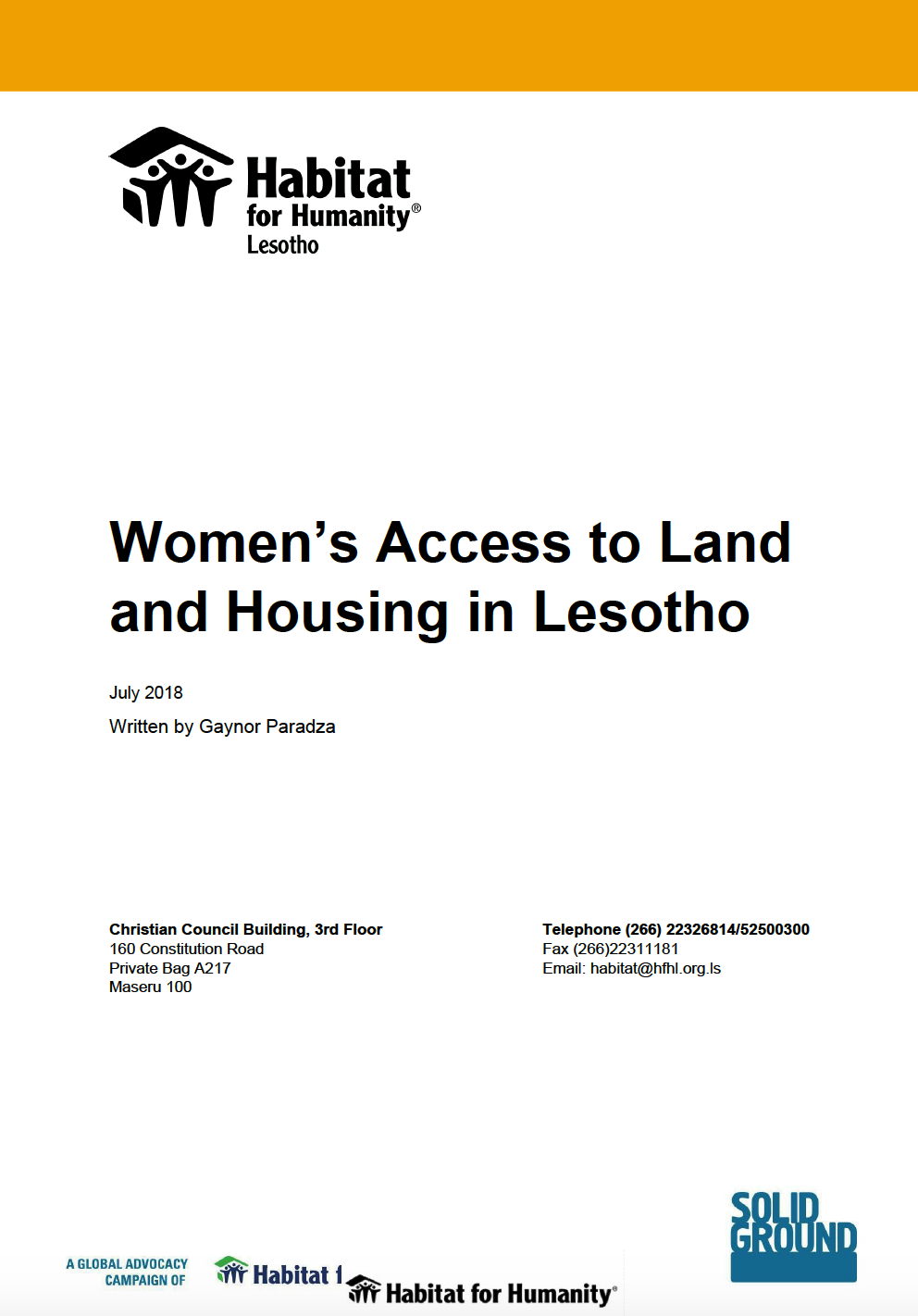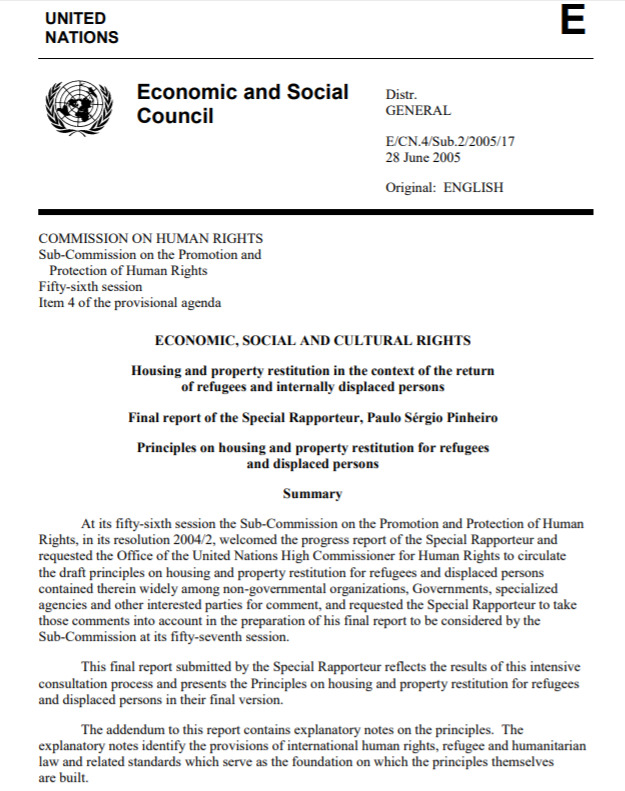Improving access to justice and basic services in the informal settlements in Nairobi : an action research approach
The ‘Price Penalty’ exists where a poor person pays an above-average price per unit of the facility, product, or service. The ‘Quality Penalty’ refers to the provision of a facility, product, or service of low quality, which is still offered at a price similar to that of higher-quality.


